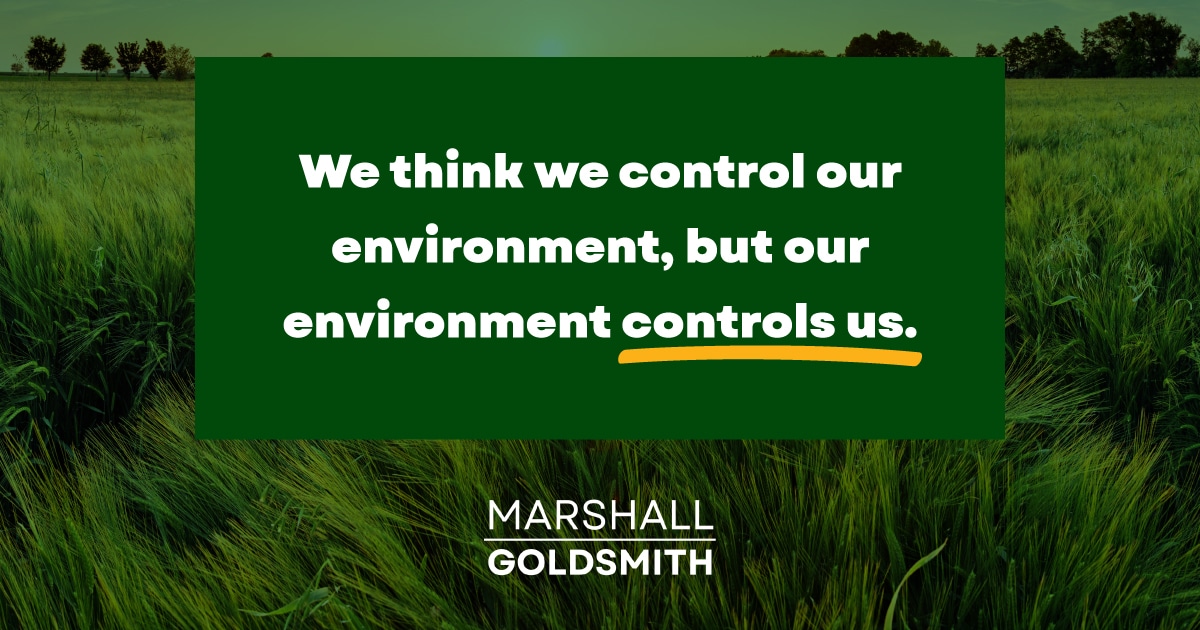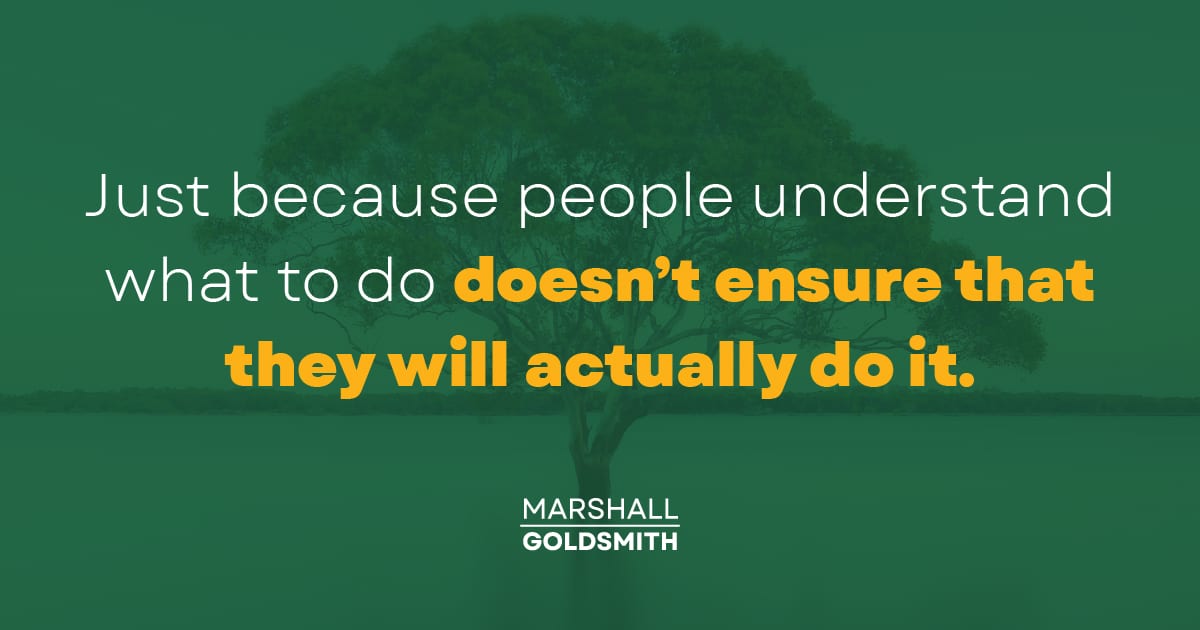Playing Favorites By Marshall Goldsmith There’s a reason I devote...
My greatest hero is Buddha. He is my personal superhero.
Like all of my other wonderful heroes, Frances Hesselbein, Peter Drucker, Alan Mulally, and Dr. Paul Hersey, Buddha was a generous teacher.
The difference between the Buddha and my other heroes is that although I never met him, his teachings transcend space and time to me today and he illuminates my life thousands of years after his. Even more incredible, he didn’t even write a book! He teaches me across the space and time continuum and he does it through other people.
Let me give you one example of how I have tried to use Buddha’s teaching in my work. Buddha suggested that his followers only do what he taught if it worked in the context of their own lives. He encouraged people to listen to his ideas, think about his suggestions, try out what made sense – keep doing what worked – and to just “let go” of what did not work.
Similarly, I teach my clients to ask their key stakeholders for suggestions on they can become more effective leaders then listen to these ideas, think about the suggestions, try out what makes sense – keep doing what works – and let go of what does not.
When our stakeholders give us suggestions on how we can become more effective, we can look at these suggestions as gifts – and treat our stakeholders as gift-givers. When someone gives you a gift you wouldn’t say, “Stinky gift!” “Bad gift!” or “I already have this stupid gift!” You would say, “Thank you.”
If you can use the gift – use it. If you don’t want to use the gift, put it in the closet and “let it go.”
You would not insult the person who is trying to be nice by giving you a gift. In the same way, when our stakeholders give us ideas, we don’t want to insult them or their ideas. We can just learn to say, “Thank you.”
We cannot promise to do everything that people suggest we should do. We can promise to listen to our key stakeholders, think about their ideas, and do what we can. This is all that we can promise – and this is all that they expect.
Get in the habit of asking the important people in your life, “How can I be a better…?”
This works at work – in your efforts to become a better leader, team member, or co-worker.
This works at home – in your efforts to become a better friend or family member.
Who do you need to ask, “How can I become a better…?” How do you typically respond to suggestions? Do you treat them as gifts – or do you critique them and the person making them?
That is just one way that I use what Buddha has taught me.
Recently I was so inspired by Buddha’s role model that I decided to mentor 15 people at no charge. My idea was to pick 15 people to teach everything that I know. In return, these 15 would do the same thing for 15 others, for free.
I called the project #15Coaches.

The response to this offering was so overwhelmingly positive that I have decided to expand the group to 100 Coaches. What is so amazing to me about the breadth of responses is that everyone who applied has a desire to “give it back.” This is a wonderful optimistic message of who we are as a group!
Because of this incredible response, I have decided to expand the program and it is now called #100Coaches. I am currently selecting the next 75 coaches! For more details and updates, please go to my website (www.marshallgoldsmith.com) or follow me on social media.
Thank you all for your support of this great project!
#100Coaches
Triggers is a #1 New York Times and Wall Street Journal best-seller! Order it at Amazon. See The Marshall Goldsmith Thinkers50 Video Blog for more of this video series.

Adding Too Much Value Won’t Get You There By Marshall...
C-Suite Master Class: No, But, However By Marshall Goldsmith Continuing...
The Doerr Institute: Expanding the Market for Coaches By Marshall...
Making Leadership Development Part of the College Degree at Rice...
Sanyin Siang – Winner of the Thinkers50 Marshall Goldsmith Coaching...
Thinkers50 Marshall Goldsmith Distinguished Achievement Award in Coaching – Nominees...
Leading with Influence: What Is Influence360°? By Marshall Goldsmith Founder...
Are You a Dominator, Manipulator, Persuader or Influencer? By Marshall...
Leading with Influence: Redefining Modern Influence Part 2 By Marshall...
My greatest hero is Buddha. He is my personal superhero.
Like all of my other wonderful heroes, Frances Hesselbein, Peter Drucker, Alan Mulally, and Dr. Paul Hersey, Buddha was a generous teacher.
The difference between the Buddha and my other heroes is that although I never met him, his teachings transcend space and time to me today and he illuminates my life thousands of years after his. Even more incredible, he didn’t even write a book! He teaches me across the space and time continuum and he does it through other people.
Let me give you one example of how I have tried to use Buddha’s teaching in my work. Buddha suggested that his followers only do what he taught if it worked in the context of their own lives. He encouraged people to listen to his ideas, think about his suggestions, try out what made sense – keep doing what worked – and to just “let go” of what did not work.
Similarly, I teach my clients to ask their key stakeholders for suggestions on they can become more effective leaders then listen to these ideas, think about the suggestions, try out what makes sense – keep doing what works – and let go of what does not.
My mission is simple. I want to help successful people achieve positive, lasting change and behavior; for themselves, their people, and their teams. I want to help you make your life a little better. With four decades of experience helping top CEOs and executives overcome limiting beliefs and behaviors to achieve greater success, I don’t do this for fame and accolades. I do this because I love helping people!
As an executive educator and coach, I help people understand how our beliefs and the environments we operate in can trigger negative behaviors. Through simple and practical advice, I help people achieve and sustain positive behavioral change.